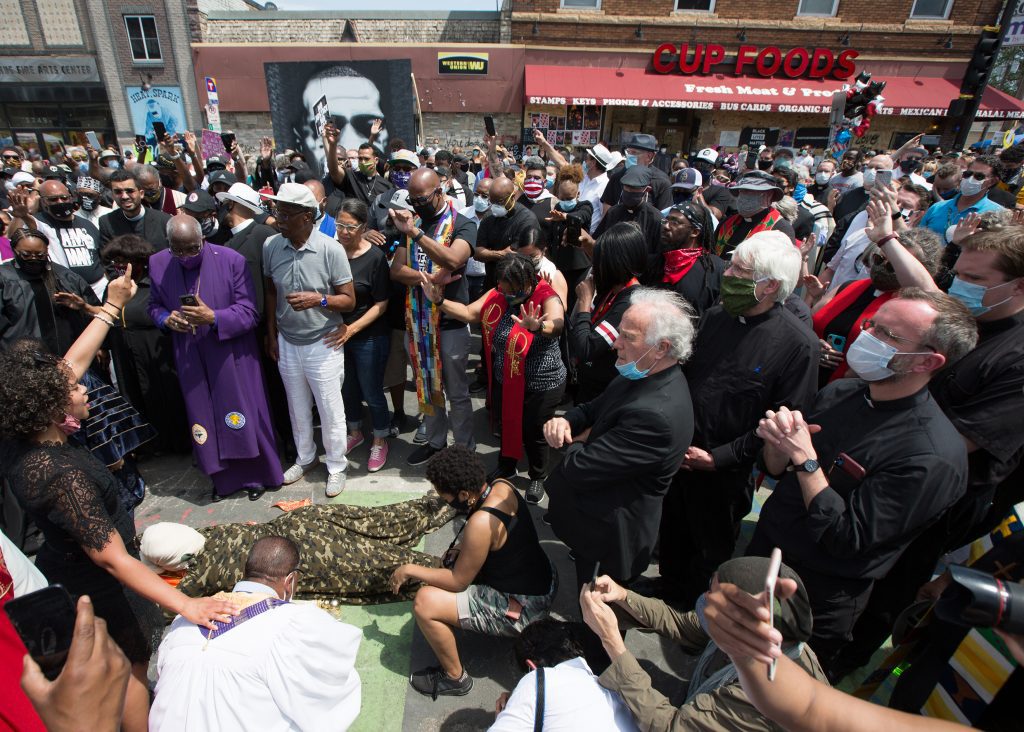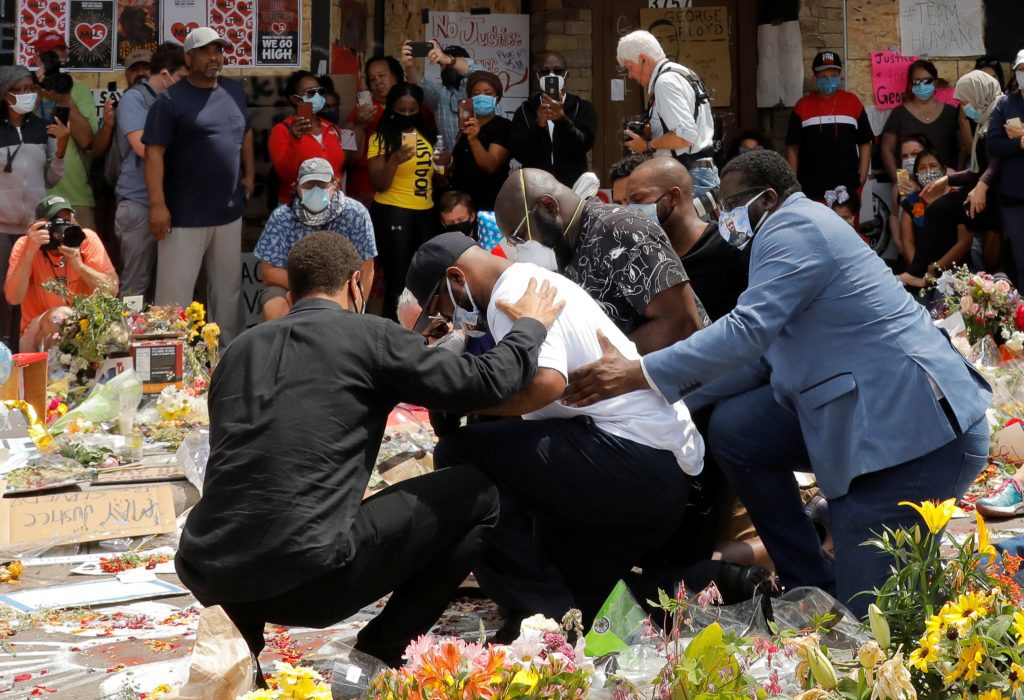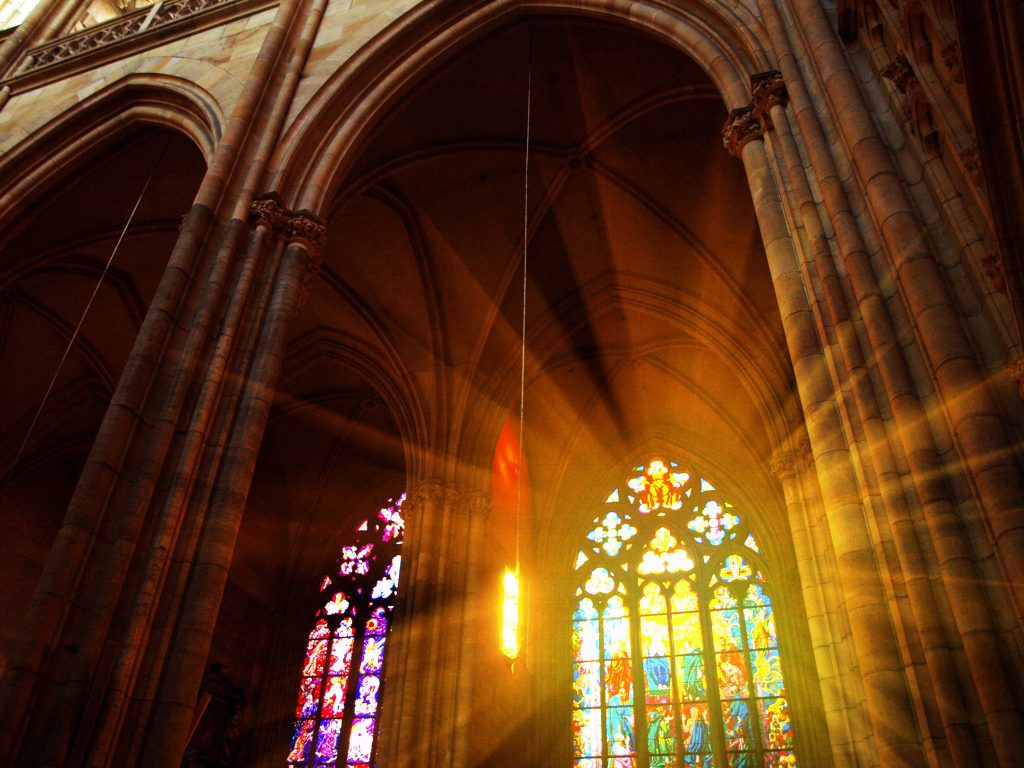We are committed to protecting the sanctity of life
A MESSAGE FROM BISHOP BAMBERA
Dear Friends in Christ,
The Catholic Church has long upheld a commitment to protecting the sanctity of life from conception until natural death. At times, this rhetoric has been a reality in the day-to-day actions of the Church, as our Catholic hospitals, universities, and institutions have strived to promote a pro-life ethic. At other times, however, our Church has failed to speak loudly enough against offenses in the world today and within our own ranks. At such points, we are challenged to reflect upon our beliefs, examine our moral world, and follow our call to action.
Last month, the Kirby Health Center revoked the lease of an established Planned Parenthood clinic in Wilkes-Barre. At the time, there was a serious question of whether or not this Planned Parenthood, which has not provided abortions in the past, would change its policies to provide abortions in the future. Some of the more prominent pro-life groups in our Diocese took action against this organization and fought hard to ensure that our values were expressed to the proper avenues. While this particular clinic has now clarified that it will not be providing abortion services at the new site, the dialogue surrounding this event serves as a reminder that we, as Catholics, are called to take action in representing our faith. If we are truly pro-life, then we must be consistently confident in establishing our values not only when issues like this arise, but in our daily lives, voting habits, and rhetoric.
As a Church dedicated to respecting life, we must see these issues on the real-life spectrum. In his 2013 encyclical, Evangelii Gaudium (The Joy of the Gospel), Pope Francis challenges us to examine the Church’s pro-life attitude not as a political belief, but as a commitment to protecting the innocent human person. This commitment is not subject to change based on current climate because it is not a fundamentally political value, but a moral one. Our pro-life values challenge us to protect the life of the child and his or her mother, providing all the resources that families need to thrive.
As such, we see a need to seek out the silences in our society and to protect those who are voiceless. In our daily actions and our advocacy efforts, we must strive to protect the unborn, the poor, immigrants and refugees, the disabled, and the elderly. In the Diocese of Scranton, we hope that this year will offer new opportunities to serve each and every one of these groups. At this time especially, we are grateful to all the groups and programs within our Diocese who have made an effort to protect the lives of the vulnerable in past decades. We have immense gratitude toward Saint Joseph’s Center, Catholic Social Services, Friends of the Poor, Rachel’s Vineyard, and organizations such as Pennsylvanians for Human Life for their existing work in serving the poor and vulnerable of Northeast and North-Central Pennsylvania. We hope that, in the coming years, we can continue to work with these organizations while expanding our Diocesan commitment to pro-life ministries of all kinds.
As you may know, the 2019 March for Life will be held January 18 in Washington, D.C. In an effort to show our commitment to Respect Life this month, we will be sending postcards to our senators and representatives to reiterate our stance toward the defense of life from conception until natural death. In the past few months, we have been reminded again and again that these views are relevant not only when Planned Parenthood renews its lease in one of our cities or when a new law is put into effect. Rather, our values must remain at the forefront of our minds and our hearts at all times – and they should be in the plain sight of our lawmakers. This month, we ask you to consider signing one of the cards that will be sent to each of our parishes here in the Diocese of Scranton and to share these with your friends and family.
Together, as a people of faith, we can set an example of what it means to be a people of life and a people of joy. This month, my prayer is that each of us will recognize our own ability and responsibility through our baptism to defend the lives of those on the margins of our society.
Faithfully yours in Christ,
Most Reverend Joseph C. Bambera, D.D., J.C.L.
Bishop of Scranton
Estamos comprometidos con proteger la santidad de la vida
UN MENSAJE DEL OBISPO BAMBERA
Queridos amigos en Cristo,
La Iglesia Católica durante mucho tiempo ha mantenido un compromiso para proteger la santidad de la vida desde la concepción hasta la muerte natural. A veces, esta retórica ha sido una realidad en las acciones cotidianas de la iglesia, como nuestros hospitales católicos, universidades, y las instituciones se han esforzado para promover una ética de vida. En otras ocasiones, sin embargo, nuestra iglesia ha fallado en hablar en voz suficientemente alta contra delitos en el mundo de hoy y dentro de nuestras propias filas. En dichos puntos, nos desafía a reflexionar sobre nuestras creencias, examinar nuestro mundo moral y seguir nuestro llamado a la acción.
El mes pasado, el centro de salud de Kirby revocó la concesión de una clínica de Planned Parenthood (Planificacion familiar) establecida en Wilkes-Barre. Al tiempo, hubo una grave cuestión de si o no esta planificación de la familia, que no ha proporcionado los abortos en el pasado, iba a cambiar sus políticas para proporcionar abortos en el futuro. Algunos de los más prominentes grupos pro-vida en nuestra diócesis tomaron acción contra esta organización y lucharon para asegurar que nuestros valores se expresaron en las avenidas adecuadas. Mientras que esta clínica particular ahora ha aclarado que no ofrecerá servicios de aborto en el nuevo sitio, el diálogo que rodean este evento sirve como un recordatorio de que, como católicos, estamos llamados a actuar en representación de nuestra fe. Si somos verdaderamente pro-vidas, debemos tener la confianza constante de establecer nuestros valores no sólo cuando temas como este se presentan, pero en nuestra vida cotidiana, hábitos de votación y el diálogo.
Como una iglesia dedicada al respeto de la vida, tenemos que ver estas cuestiones en el espectro de la vida real. En su encíclica del 2013, Evangelii Gaudium (la alegría del Evangelio), Papa Francisco nos desafía a examinar la actitud de pro vida de la iglesia no como una creencia política, sino como un compromiso con la protección de la persona humana inocente. Este compromiso no está sujeta a cambios basado en el clima actual ya no es un valor fundamentalmente político, sino moral. Nuestros valores de vida nos desafían para proteger la vida del niño y su madre, proporcionando todos los recursos que las familias necesitan para prosperar.
Así, vemos la necesidad de buscar a los silencios de nuestra sociedad y de proteger a aquellos que están sin voz. En nuestras acciones diarias y nuestros esfuerzos, debemos esforzarnos a proteger los no nacidos, los pobres, inmigrantes y refugiados, discapacitados y los ancianos. En la diócesis de Scranton, esperamos que este año ofrecerá nuevas oportunidades para servir a todos y cada uno de estos grupos. En este tiempo especialmente, agradecemos a todos los grupos y programas dentro de nuestra diócesis que han hecho un esfuerzo por proteger las vidas de las personas vulnerables en las últimas décadas. Tenemos inmensa gratitud hacia centro San José, Catholic Social Services, amigos de los pobres, Viña de Raquel y organizaciones como residentes de Pennsylvania para la vida humana por su trabajo existente en el servicio a los pobres y vulnerables del noreste y Centro-norte de Pennsylvania. Esperamos que en los próximos años, podemos seguir trabajando con estas organizaciones ampliando nuestro compromiso Diocesano de ministerios de vida de todas las clases al mismo tiempo.
Como ustedes saben, el 2019 marcha por la vida se llevará a cabo el 18 de enero en Washington, D.C. En un esfuerzo por mostrar nuestro compromiso de respeto a la vida este mes, estaremos enviando postales a nuestros senadores y representantes para reiterar nuestra postura hacia la defensa de la vida desde la concepción hasta la muerte natural. En los últimos meses, nos recordaron una y otra vez que estos puntos de vista son relevantes no sólo cuando Planned Parenthood renueva su concesión en una de nuestras ciudades o cuando una nueva ley en vigor. Por el contrario, nuestros valores deben permanecer a la vanguardia de nuestras mentes y nuestros corazones en todo momento – y debe a la simple vista de nuestros legisladores. Este mes, le pedimos considerar firma una de las cartas que se enviarán a cada una de nuestras parroquias aquí en la diócesis de Scranton y compartir con tus amigos y familiares.
Juntos, como pueblo de fe, podemos establecer un ejemplo de lo que significa ser un pueblo de la vida y un pueblo de la alegría. Este mes, mi oración es que cada uno de nosotros reconozca nuestra propia capacidad y responsabilidad a través de nuestro bautismo para defender las vidas de ésos en los márgenes de nuestra sociedad.
Fielmente suyo en Cristo,
S.E.R. Joseph C. Bambera, D.D., J.C.L.
Obispo de Scranton





